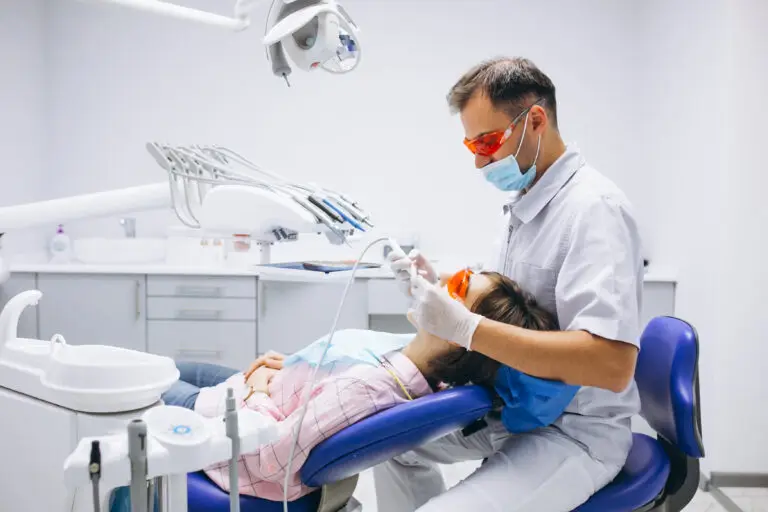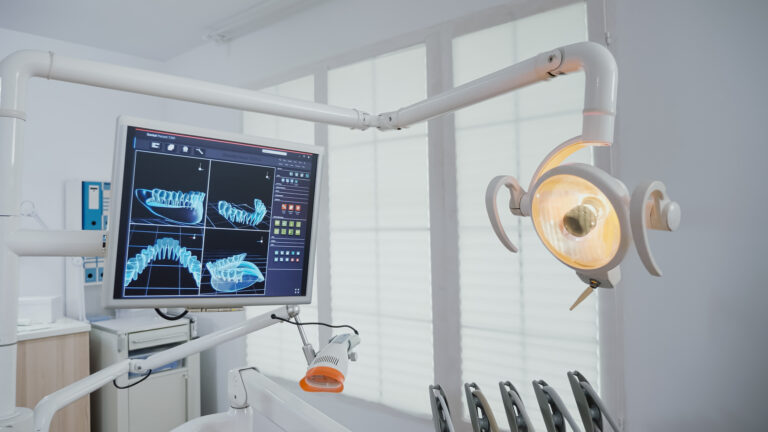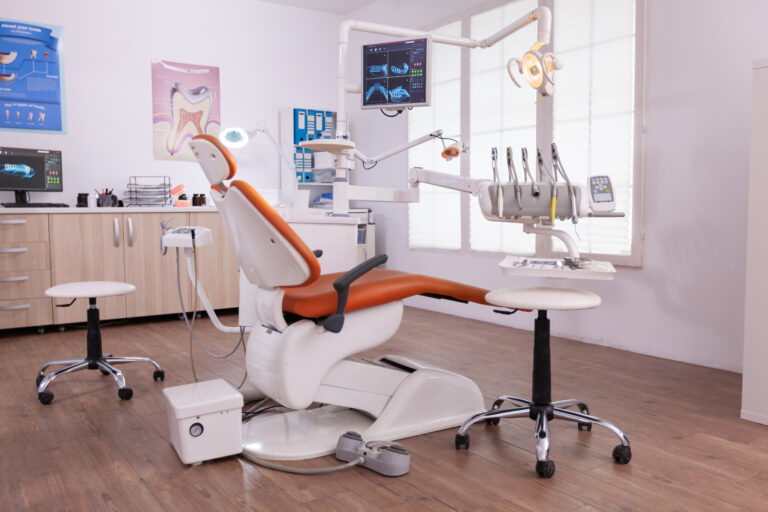How to Market Medical Supplies to Tier 2/3 Clinics
Table of Contents
Introduction
The demand for Medical Supplies in India’s Tier 2/3 Clinics is rising rapidly.
These smaller towns are seeing fast growth in healthcare infrastructure.
Yet, many MSMEs supplying medical products still focus only on metro cities. They miss huge opportunities in semi-urban and rural markets.
Unlike big hospitals in metros, Tier 2/3 Clinics often struggle to access a consistent supply of Medical Supplies.
This gap creates a golden opportunity for small suppliers, manufacturers, and distributors who want to expand their businesses.
However, selling to Tier 2/3 Clinics requires a different marketing approach.
Doctors, clinic owners, and procurement managers in these locations have different needs, buying behaviors, and budget concerns compared to metro clients.
In this article, we will explain step-by-step how MSMEs can successfully market and sell Medical Supplies to clinics in Tier 2/3 cities.
You’ll learn simple, practical strategies that work even if you are just starting or have limited resources.
1. What challenges do medical suppliers face when marketing to Tier 2/3 clinics in India?
Selling Medical Supplies to Tier 2/3 Clinics can be very profitable. But small MSMEs often face many real challenges in these markets.
Let’s break them down simply.
Limited Distributor Networks
First, many Tier 2/3 Clinics don’t have easy access to large distributor networks.
In metro cities, suppliers can rely on big medical distributors to reach hospitals and clinics.
But in smaller towns, the supply chain is often weak or scattered.
Many suppliers struggle to find trusted local distributors who can deliver regularly to clinics.
Without reliable middlemen, reaching doctors, labs, and pharmacies directly becomes difficult for small MSMEs.
High Price Sensitivity
Second, most Tier 2/3 Clinics are very careful about price. Since they serve smaller populations, their revenue is lower compared to big hospitals in cities.
Every rupee matters to them.
If your Medical Supplies are priced too high, many clinic owners may reject your offer, even if the product is of better quality.
MSMEs must learn how to balance fair pricing while maintaining profit margins.
Trust Barriers with New Suppliers
Third, there is a strong trust issue. Many doctors and clinic owners in smaller towns prefer to stick with known suppliers.
They often hesitate to try new companies or brands, especially if they have faced poor service or product quality before.
Building relationships, trust, and reputation takes longer in Tier 2/3 cities. MSMEs need patience and consistent service to win loyal customers here.
Lack of Digital Awareness
Fourth, many clinic owners in these regions are not fully familiar with online platforms.
While digital marketing is growing, some doctors still prefer phone calls, personal meetings, or visits from medical reps.
MSMEs can’t rely only on digital ads or e-commerce in these towns. They must also invest in local marketing, partnerships, and in-person relationship building.
2. Which offline marketing strategies work best for reaching Tier 2/3 healthcare buyers?
When selling Medical Supplies to Tier 2/3 Clinics, offline marketing is still very effective.
Many doctors and clinic owners in smaller towns trust personal connections more than online ads.
Let’s look at the best offline strategies for MSMEs:

Join Local Medical Associations
Most towns have medical associations or doctors’ groups.
These associations organize regular meetings, seminars, and workshops for local healthcare professionals.
By joining or sponsoring these associations, MSMEs can directly connect with many clinic owners at once.
Participating in such meetings helps suppliers build trust, demonstrate product knowledge, and answer questions face-to-face.
Organize CME Programs (Continuing Medical Education)
Doctors need to stay updated with the latest medical practices.
MSMEs can organize small CME sessions in partnership with local clinics, hospitals, or associations.
In these sessions, you can educate doctors about new Medical Supplies, explain how they work, and show the benefits. When doctors learn and see products in action, they are more likely to adopt them.
Conduct Hospital Roadshows and Product Demos
Another effective way is organizing small product demonstrations at clinics and hospitals.
You can show how your Medical Supplies or equipment work, highlight safety features, and answer common concerns.
Live demos help clinics see the quality directly, which builds trust much faster than brochures or phone calls.
Build Local Agent Networks
Local agents or sales representatives play a very important role in Tier 2/3 Clinics.
They speak the local language, know the doctors personally, and can visit clinics regularly.
By building a network of trusted local agents, MSMEs can reach more clinics and maintain regular contact.
Agents can also collect feedback and handle after-sales support.
Encourage Word-of-Mouth Referrals
In small towns, word-of-mouth is extremely powerful. If one clinic is happy with your product, the doctor may recommend you to other nearby clinics or labs.
To encourage this, provide excellent service, timely delivery, and competitive pricing.
Over time, satisfied customers will bring more business without extra marketing costs.
3. How can medical suppliers use WhatsApp and regional languages to connect with small clinic owners?
For MSMEs selling Medical Supplies to Tier 2/3 Clinics, trust and easy communication are very important.
Many clinic owners in smaller towns are not fully comfortable with complex websites or apps.
However, most of them actively use WhatsApp on a daily basis.
This makes WhatsApp one of the most powerful tools to connect with these healthcare buyers.
Use WhatsApp Catalogs for Product Display
Instead of sending long PDF brochures or asking clinic owners to visit a website, suppliers can simply create a WhatsApp Business account.
The app allows you to create a product catalog where each item has:
- Product name
- Clear images
- Price details
- Brief specifications
Clinic owners can browse these catalogs easily on their phones without any extra effort.
This makes product discovery very simple and convenient.
Send Local Language Brochures
Many clinic owners prefer to read in their regional language.
So, creating brochures or flyers in local languages (like Hindi, Marathi, Tamil, Telugu, etc.) makes your message more friendly and easy to understand.
A simple one-page brochure in the local language can explain:
- Product benefits
- Pricing offers
- Contact details
This builds confidence and shows that you understand the buyer’s needs.
Use Personalized Voice Notes
Many small-town clinic owners may not read long messages, but they will happily listen to short voice notes. Suppliers can record a 30-second message explaining:
- New product arrivals
- Limited-time offers
- Simple product features
Speaking in their regional language adds a personal touch and helps build trust quickly.
Share Quick Order Updates
Suppliers can use WhatsApp to:
- Confirm orders
- Send delivery updates
- Share invoices and payment reminders
This constant communication gives clinics a sense of transparency and reliability, which strengthens long-term relationships.
Run Broadcast Lists for Regular Buyers
Once you build a small customer base, you can create WhatsApp broadcast lists for:
- New product launches
- Stock clearance offers
- Seasonal discounts
Since these lists work like personalized one-to-one messages, they avoid spamming but keep your clinic buyers regularly informed.
Offer Easy Support
Small clinics often want quick answers to product-related questions or delivery timelines.
WhatsApp allows you to handle these queries instantly, building trust and ensuring repeat business.
4. What online B2B platforms help reach smaller clinics and diagnostic labs in India?
For MSMEs selling Medical Supplies to Tier 2/3 Clinics, online B2B platforms can open up big new markets.
Even in smaller towns, many clinic owners have started using digital platforms to search for medical products.
Suppliers can list their products on these platforms to get visibility and direct inquiries from small clinics and diagnostic labs.
IndiaMART
IndiaMART is one of India’s largest B2B marketplaces. It has a huge reach in both metro and smaller cities. Many Tier 2/3 clinics and lab owners use IndiaMART to search for:
- Medical equipment
- Consumables
- Lab instruments
- Dental tools
IndiaMART allows suppliers to:
- Create a free or paid company profile
- Upload product catalogs with photos and prices
- Receive direct inquiries from buyers
- Use verified seller badges to build trust
The platform’s strong SEO also helps suppliers appear on Google searches made by clinic owners.
Medikabazaar
Medikabazaar is fully focused on healthcare and is very popular among clinics, labs, and hospitals. It offers:
- Medical equipment
- Surgical tools
- Diagnostic kits
- Consumables
Medikabazaar’s platform is simple, and many small clinics trust it because it focuses only on healthcare products.
It also offers credit support and logistics, making order processing easy for both suppliers and buyers.
Biddano
Biddano is a newer but fast-growing platform that helps connect distributors with healthcare providers, especially in Tier 2 and Tier 3 cities. Its features include:
- Inventory syncing
- Region-wise product availability
- Delivery assistance
Biddano works well for MSMEs trying to expand regionally, as it offers better delivery coverage even for smaller healthcare businesses.
TradeIndia
TradeIndia is another large B2B marketplace like IndiaMART. It offers:
- Multiple product categories, including medical supplies
- Business inquiries
- Paid membership options for extra visibility
- Verified business listings
For small suppliers, TradeIndia can provide additional exposure to buyers who might not be on IndiaMART.
Localized B2B Marketplaces
In addition to national platforms, some regional marketplaces also serve smaller towns. Examples include:
- State-level medical distributor networks
- District healthcare procurement portals
- Regional WhatsApp seller groups for medical supplies
These smaller platforms are useful for hyper-local sales and repeat orders.
Why B2B Platforms Work Well for MSMEs
- No need for a big sales team
- Buyers directly approach sellers online
- Low marketing cost
- Visibility beyond the local region
- Builds trust through online presence
By combining multiple B2B platforms, MSMEs can steadily build their customer base across many smaller cities and towns.
5. How important is flexible credit, low MOQs, and after-sales support while marketing to small-town healthcare providers?
For MSMEs selling Medical Supplies to Tier 2/3 Clinics, building strong, long-term relationships is very important.
Most small-town healthcare providers face daily cash flow challenges. They want reliable suppliers who understand their financial limitations.
This is where flexible credit, small order sizes, and strong service make a huge difference.
Flexible Credit Builds Trust
Many small clinics don’t have large working capital. Offering flexible credit terms helps:
- Ease their cash flow burden
- Build trust with new buyers
- Allow clinics to place orders without worrying about immediate full payment
Suppliers can offer:
- 15 to 30 days credit terms
- Post-dated cheques
- Partial upfront payments with a balance after delivery
Such credit terms help small clinics manage their finances better. Over time, these buyers become loyal, repeat customers.
Low Minimum Order Quantities (MOQs) Encourage First Orders
For many small clinics or new setups, placing large orders upfront is risky.
High MOQs may scare small buyers who have limited space and uncertain demand. By offering low MOQs, suppliers can:
- Encourage trial orders
- Reduce buyer hesitation
- Build confidence before larger purchases
For example:
- Allow orders of 10 boxes instead of 100
- Permit single-piece orders for expensive items
- Offer starter kits or combo packs
Low MOQs make it easier for small-town healthcare providers to start business relationships with new vendors.
After-Sales Support Builds Long-Term Loyalty
Supplying the product is only half the job. Good after-sales service ensures long-term business growth. Small-town clinics rely on vendors for:
- Quick replacements if products are defective
- Help with equipment setup or troubleshooting
- Training staff on using new devices or tools
- Fast responses to questions or problems
When suppliers give strong after-sales support, it builds confidence. The clinic feels secure that the supplier will stand by the product.
Why All Three Factors Matter Together
In Tier 2/3 cities, price is important, but trust is even more important. Flexible credit, low MOQs, and great service together create:
- Repeat orders
- Word-of-mouth referrals
- Long-term contracts
- Lower chances of customers switching to competitors
For MSMEs trying to grow their presence in small-town healthcare markets, these simple business practices create a strong foundation.
6. How can suppliers build trust and long-term relationships with Tier 2/3 clinics?
When selling Medical Supplies to Tier 2/3 Clinics, trust is everything. I
n small towns, clinic owners often hesitate to try new suppliers.
They want reliability, consistency, and personal attention.
Therefore, suppliers need to focus on a few simple but powerful methods to build long-term partnerships.
Face-to-Face Meetings Matter
Unlike big cities, where most deals happen online or over the phone, small-town healthcare providers prefer to meet the supplier in person. Face-to-face interactions help:
- Build personal rapport
- Allow the clinic owner to ask questions freely
- Show the supplier’s commitment to service
Regular visits from sales representatives make the clinic feel valued and increase confidence in the supplier’s seriousness.
Demo Sessions Build Confidence
Many small clinics are run by first-time entrepreneurs or family-run setups. They may not be fully familiar with the latest Medical Supplies. Offering free product demos helps:
- Educate clinic staff on product usage
- Showcase product quality
- Clear doubts before purchase
- Avoid future operational issues
When clinics experience the product first-hand, they feel more comfortable placing orders.
Local Technicians Provide Quick Support
Small-town clinics often worry about service delays if something goes wrong. Having trained local technicians ensures:
- Faster service response
- Less downtime for critical equipment
- Confidence that help is nearby
Suppliers who train or appoint local service partners can offer much better customer satisfaction compared to suppliers who depend only on big-city service centers.
Quick Service Response Shows Commitment
Even with reliable products, service issues will arise. How quickly a supplier responds often matters more than the problem itself. Good suppliers:
- Respond to service calls within 24-48 hours
- Keep replacement parts easily available
- Provide standby units if major repairs are needed
When clinics know that their supplier is always reachable, they stay loyal for years.
Consistent Pricing Builds Long-Term Loyalty
Frequent price changes or hidden charges frustrate small clinic owners. Suppliers should:
- Maintain transparent pricing
- Avoid sudden price hikes
- Offer loyalty-based discounts for repeat orders
Stable pricing allows clinics to plan better and stay with the same vendor rather than constantly switching.
Summary
In small towns, personal relationships and service quality outweigh everything else.
By combining face-to-face meetings, hands-on demos, local service support, quick response, and fair pricing, suppliers can earn the trust of Tier 2/3 Clinics.
This trust then converts into steady repeat business for many years.
Conclusion
Marketing Medical Supplies to Tier 2/3 Clinics in India requires a different mindset compared to big cities.
In smaller towns, relationships, trust, and service carry much more weight than heavy discounts or flashy promotions.
Suppliers who invest time in personal visits, product demos, local service networks, and flexible credit terms can build strong, loyal customer bases that provide consistent business over time.
Offline efforts like connecting through local medical associations and CME programs give suppliers a strong foothold.
At the same time, simple digital tools like WhatsApp catalogs, regional language brochures, and B2B platforms like IndiaMART, Medikabazaar, or Biddano open doors to wider markets.
Ultimately, the key is to simplify ordering, support customers promptly, and maintain transparent pricing.
With these steps, even small suppliers can successfully scale their business across underserved healthcare markets in Tier 2/3 India.
The Following Video Might be Helpful for You
Also Read,
- The Ultimate Guide: Working Capital Loans for Small Business (MSMEs) in 2025
Understanding the Impact of Payment Terms on Working Capital for Clinics
How Poor Inventory Management Hurts Working Capital in Pharmacies.
Want a Better Business Credit Score? Small Pharmacies Can Now Use UPI & Cards to Build It
Want a Better Credit Score? Use Small Daily Payments to Build Your CBIL (For Clinics & Pharmacies)
Case Study:How a Small Clinic Improved Its Working Capital Management





